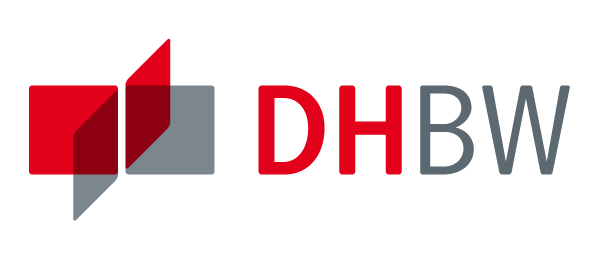Prof. Dr. Ulf-Daniel Ehlers
Veröffentlichungen
-
(2018) : Support learning trough microcredentialling – The case of the MicroHE initiative In: European Distance and E-Learning Network: Exploring the Micro, Meso and Macro. Unter Mitarbeit von Airina Volungevičienė und András Szűcs: Navigating between dimensions in the digital learning: Genua
-
(2018) : The digital and network society needs for open online learning In: European Distance and E-Learning Network: Exploring the Micro, Meso and Macro. Unter Mitarbeit von Airina Volungevičienė und András Szűcs: Navigating between dimensions in the digital learning: Genua
-
(2018) : THE DIGITAL AND NETWORK SOCIETY NEEDS FOR OPEN ONLINE LEARNING In: Volungevičienė, Airina; Szűcs, András (Hg.): Exploring the Micro, Meso and Macro: Navigating between dimensions in the digital learning landscape: Book of Abstracts: EDEN 2018Annual Conference: Genoa,Italy: 17-20June 2018. European Distance and E-Learning Network
-
(2018) : THE DIGITAL AND NETWORK SOCIETY NEEDS FOR OPEN ONLINE LEARNING In: European Distance and E-Learning Network: Exploring the micro, meso and macro: Navigating between dimensions in the digital learning landscape: 27th annual conference: Exploring the micro, meso and macro: Navigating between dimensions in the digital learning landscape: Genova, Italia: 17-20 June 2018
-
(2018) : The digital and network society needs for open online learning. In: European Distance and E-Learning Network: Exploring the micro, meso and macro: Navigating between dimensions in the digital learning landscape: 27th annual conference: Exploring the micro, meso and macro: Navigating between dimensions in the digital learning landscape: Genova, Italia: 17-20 June 2018
-
(2018) : The digital and network society needs for open online learning. In: Volungevičienė, Airina; Szűcs, András (Hg.): Exploring the Micro, Meso and Macro: Navigating between dimensions in the digital learning landscape: Book of Abstracts: EDEN 2018Annual Conference: Genoa,Italy: 17-20June 2018. European Distance and E-Learning Network
-
(2018) : Higher creduation - Degree or education? The rise of Microcredentials and its consequences for the university of the future In: European Distance and E-Learning Network: Exploring the micro, meso and macro: Navigating between dimensions in the digital learning landscape: 27th annual conference: Exploring the micro, meso and macro: Navigating between dimensions in the digital learning landscape: Genova, Italia: 17-20 June 2018
-
(2018) : Higher creduation - Degree or education? The rise of Microcredentials and its consequences for the university of the future. In: Volungevičienė, Airina; Szűcs, András (Hg.): Exploring the Micro, Meso and Macro: Navigating between dimensions in the digital learning landscape: Book of Abstracts: EDEN 2018Annual Conference: Genoa,Italy: 17-20June 2018. European Distance and E-Learning Network
-
(2018) : Higher creduation – degree or education? The rise of microcredentials and its consequences for the University of the Future In: Volungevičienė, Airina; Szűcs, András (Hg.): Exploring the Micro, Meso and Macro: Navigating between dimensions in the digital learning landscape: Book of Abstracts: EDEN 2018Annual Conference: Genoa,Italy: 17-20June 2018. European Distance and E-Learning Network
-
(2018) : Higher creduation – degree or education? The rise of microcredentials and its consequences for the University of the Future In: European Distance and E-Learning Network: Exploring the Micro, Meso and Macro. Unter Mitarbeit von Airina Volungevičienė und András Szűcs: Navigating between dimensions in the digital learning: Genua
-
(2018) : Higher creduation – degree or education? The rise of microcredentials and its consequences for the University of the Future In: European Distance and E-Learning Network: Exploring the micro, meso and macro: Navigating between dimensions in the digital learning landscape: 27th annual conference: Exploring the micro, meso and macro: Navigating between dimensions in the digital learning landscape: Genova, Italia: 17-20 June 2018
-
(2018): Digital Leadership in Hochschulen. In: Synergie - Fachmagazin für Digitalisierung der Lehre (Vol. 6 „Shaping the digital turn“), S. 24-27. Online verfügbar unter https://www.synergie.uni-hamburg.de/de/media/ausgabe06/synergie06-beitrag05-ehlers.pdf
-
(2018) : On ethical leadership and education In: ASEF Young Leaders Summit: Proceedings of the Conference of Asia-European Foundation “Young Leaders Summit – Ethical Leadership”: 3rd ASEF Young Leaders Summit (ASEFYLS3): Brussels, Belgium: 15-19 October 2018
-
(2018) : On ethical leadership and education In: Asia-Europe Foundation: Proceedings of the Conference of Asia-European Foundation “Young Leaders Summit – Ethical Leadership”: Representing Young Leaders of the3rdASEF Young Leaders Summit (ASEFYLS3) on“Ethical Leadership” in conjunction with the 12thASEM Summit(ASEM12): Brussels,Belgium: 18-19 October 2018
-
(2018) : Open education practices in higher education. Towards personalized guidance and support for learning In: Duart, Josep M.; Szűcs, András (Hg.): Conference Proceedings: Towards Personalized Guidance and Support for Learning: 10th EDEN Research workshops: Barcelona, Spain: 24-26 October 2018. European Distance and E-Learning Network
-
(2018) : University Teacher Skills and Attitudes to Create and Use OER In: European Distance and E-Learning Network: European Distance and E-Learning Network (EDEN) Conference Proceedings, Issue 2: 10th EDEN Research Workshop: Barcelona: 24-26 October 2018, S. 145-150
-
(2018) : University Teacher Skills and Attitudes to Create and Use OER In: Duart, Josep M.; Szűcs, András (Hg.): Conference Proceedings: Towards Personalized Guidance and Support for Learning: 10th EDEN Research workshops: Barcelona, Spain: 24-26 October 2018. European Distance and E-Learning Network, S. 145-150
-
(2017) : Qualitative Onlinebefragung In: Mikos, Lothar; Wegener, Claudia (Hg.): Qualitative Medienforschung: Ein Handbuch: 2., völlig überarbeitete und erweiterte Auflage: Konstanz; München: UVK Verlagsgesellschaft mbH, UVK Lucius (utb-studi-e-book), S. 327-329
-
(2017) : Qualitätskultur In: Facultas: Qualitätskultur: Ein Blick in die gelebte Praxis der Hochschulen. Beiträge zur 4. AQ Austria Jahrestagung 2016: 1. Auflage: Wien: Facultas. Online verfügbar unter https://www.pedocs.de/volltexte/2017/12911/pdf/AQ_Austria_2016_Qualitaetskultur_Tagungsband.pdf
